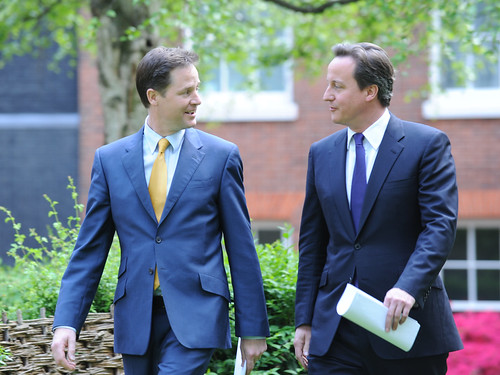Carwyn Jones, Labour leader and First Minister for Wales, was grilled this morning about devolution and the future of public services in Wales.
In a brief television interview with Andrew Marr, Mr Jones defended his decision not to ring-fence the NHS, and maintained that the Wales Job Fund would tackle what Marr described at “unemployment black spots”.
Carwyn Jones, courtesy of Flickr
“I do not believe for one moment health has been ring fenced in England,” he said. Mr Jones highlighted the 7.5% decrease in Wales’ health budget.
“We can only do what we can with the money that we get,” he said.
Mr Jones said of unemployment: “There is no one answer. The last thing you do is remove the future job fund – taking away the scheme that helped them the most seems ridiculous.”
He claimed the Wales Job Fund would create 4,000 jobs for young people.
Marr tried to rustle Mr Jones’s feathers by asking him if he felt Wales had to “march in step” with Westminster.
“We have a business-like relationship with the UK,” Mr Jones replied. “We want to shield people from the worst effects of cuts. We do things in Wales not because we want to be different for the sake of it or to be awkward,” he maintained.
Marr also suggested that Welsh universities would become “second class” and “pound saver” universities if they decided against raising their tuition fees.
Mr Jones explained he did not want to price “talented young people” out of university, and reminded Marr that some universities would be able to raise their fees if they met certain criteria.








